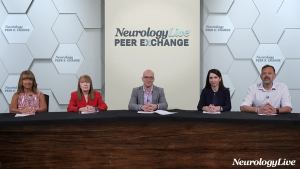Jacqueline Nicholas, MD, MPH
Articles by Jacqueline Nicholas, MD, MPH
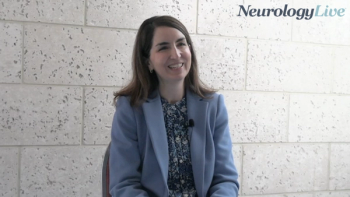
At the 2025 ACTRIMS Forum, the system chief of neuroimmunology and multiple sclerosis at OhioHealth discussed the need for better tools to detect MS progression. [WATCH TIME: 3 minutes]
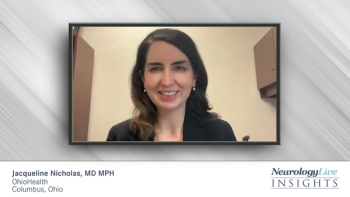
Jacqueline Nicholas, MD MPH discusses the importance of targeting NMOSD through different mechanisms of action and highlight key points for communicating with neurologists about the role of the complement system in the disease.

Jacqueline Nicholas, MD, MPH, discusses available treatment options for NMOSD, including management of acute phases, relapses, and symptom control, as well as how both traditional and newer therapies address different aspects of NMOSD pathophysiology.

Jacqueline Nicholas, MD, MPH, discusses the evolution of NMOSD pathophysiology understanding and the critical role of the complement system in its development.
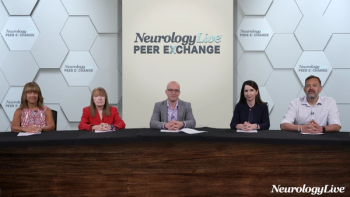
Conversations With Patients About Mild/Moderate Multiple Sclerosis
ByStephen Krieger, MD,Heidi Crayton, MD,Jacqueline Nicholas, MD, MPH,Patricia K. Coyle, MD,Enrique Alvarez, MD, PhD The expert panel examines early multiple sclerosis (MS) and patients with mild MS even in later stages of the disease, emphasizing crucial information to convey to patients throughout their journey; faculty also explore cases where disease-modifying therapies (DMTs) may not be utilized.

Mild/Moderate Multiple Sclerosis in Patients of Different Races and Ethnicities
ByStephen Krieger, MD,Heidi Crayton, MD,Jacqueline Nicholas, MD, MPH,Patricia K. Coyle, MD,Enrique Alvarez, MD, PhD Multiple sclerosis (MS) specialists discuss their observations regarding variations in MS presentation and progression among patients of Different Races and Ethnicities

Defining Mild Multiple Sclerosis
ByStephen Krieger, MD,Heidi Crayton, MD,Jacqueline Nicholas, MD, MPH,Patricia K. Coyle, MD,Enrique Alvarez, MD, PhD The panelists explore diagnostic methods for differentiating between mild and moderate multiple sclerosis (MS) while also examining prognostic factors, the role of imaging, and the concept of brain reserve in mild MS cases.

Presentation of Clinically Isolated Syndrome/First Attack of Multiple Sclerosis
ByStephen Krieger, MD,Heidi Crayton, MD,Jacqueline Nicholas, MD, MPH,Patricia K. Coyle, MD,Enrique Alvarez, MD, PhD Key opinion leaders provide insights into the prevalence and incidence of clinically isolated syndrome (CIS) within their clinical practice.
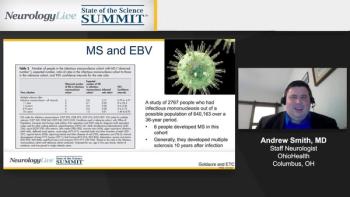
Experts share insights on the latest innovations in multiple sclerosis research, in highlights from a recent State of the Science SummitTM, presented by Neurology Live®.
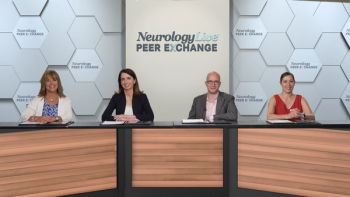
Experts in neurology share practice pearls to optimize the treatment for patients with multiple sclerosis.
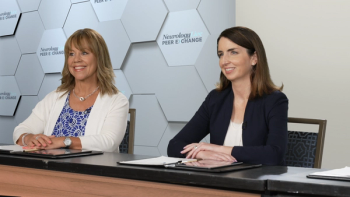
Heidi Crayton, MD; Jacqueline Nicholas, MD; and Flavia Nelson, MD, share their excitement for the future of multiple sclerosis treatment and comment on emerging therapies.

Experts in neurology provide insight into treatment selection and sequencing in patients with multiple sclerosis, focusing on S1P modulators.

Dr Jacqueline Nicholas hypothesizes about the utility of neurofilaments as a biomarker of disease severity in patients with multiple sclerosis.

Heidi Crayton, MD, and Jacqueline Nicholas, MD, review the importance of long-term safety data in the management of patients with multiple sclerosis, and Flavia Nelson, MD, discusses her approach to counseling patients on the safety considerations regarding new S1P modulating agents.
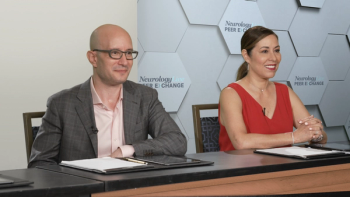
Dr Flavia Nelson comments on the impact of S1P modulators on brain volume measures; highlighting thalamic atrophy and its correlation with brain volume loss in MS.

Experts in neurology review data surrounding the role of disease-modifying therapies in preventing grey matter brain atrophy and cognitive decline.

Dr Heidi Crayton discusses the role of S1P receptor modulators in the management of patient with multiple sclerosis.

Flavia Nelson, MD, provides an overview of available brain atrophy data and cognition research in patients with multiple sclerosis.

Jacqueline Nicholas, MD, provides insight into challenges inherent to the assessment of brain health in patients with multiple sclerosis [MS].

Heidi Crayton, MD, shares a patient story to highlight the importance of imaging modalities in identifying brain loss and atrophy in patients with multiple sclerosis [MS].

Experts in neurology comment on the level of patient awareness surrounding cognitive decline in multiple sclerosis and highlight how to engage patients in difficult conversations regarding their cognitive health.

Heidi Crayton, MD; Jacqueline Nicholas, MD; and Flavia Nelson, MD, share their practices and diagnostic assessments for cognitive decline in their patients with multiple sclerosis.

Experts in neurology discuss the multiple ways in which cognitive decline can present in their patients with multiple sclerosis and highlight how they assess for it.

Heidi Crayton, MD; Jacqueline Nicholas, MD; and Flavia Nelson, MD, provide an overview of multiple sclerosis shedding light on the clinical course of disease.








